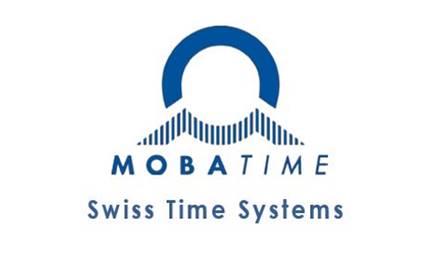Alternatives to Master/Slave Terminology
We’ve come to realize that some of the terminology used by clockmakers, including us, should change. Many prominent tech and financial companies are doing away with Master/Slave terminology and hopefully it is not just a performative move. Words have power. If we can make a small change maybe it’s helpful?
Because it can be the small microaggressions that are part of racist thought and actions we see today. Even if/when they are unintentional. I’m not sure if master/slave is considered a microaggression, but those words hold a lot of meaning.
Should We Stop Using the Word “Master”?
There’s a bit of a debate in the tech world about whether the word “master” needs to go. In the digital development world, it mostly references the main, or first, copy of a database. Sort of like a “master copy” of a recording. Master has several meanings, and not all of them are associated with servitude or slavery. For instance, you can master a subject, become a master electrician, or remaster a recording. Even though we can see the point about “master,” the word “slave” doesn’t have any advocates. And there’s proof that the connotations those words hold are very real to some people.
In 2004, a worker in the LA County Offices saw some computer equipment labeled “master” and “slave.” The anonymous worker was so upset by it that they filed a discrimination complaint. As a result, the county asked its suppliers to stop using those terms.
Karla Monterroso, now the CEO of Code 2040, recalls another instance where these terms hit home. In an article from Wired magazine, she talks about a time when she noticed the words “master/slave” plastered across some airport monitors instead of flight information. As she moved through the airport and saw those words repeated over and over, she was struck by how inappropriate it seemed. When she asked an employee about it, they told her it was just the technology. But, wherever these words are used, there is probably a workable alternative.
Alternative Terminology
Here are several options that we came up with to replace Master/Slave:
Primary/Secondary
Initial/Subsequent
Server/Agent
Controller/Worker
Leader/Follower
Conductor/Follower
Sender/Receiver
Main/Secondary
Controller/Peripheral
Manager/Worker
Main/Follower
Controller/Movement
When it comes to describing clocks, we like Controller/Movement or Main/Secondary the best.
What Do Masters and Slaves Have to Do With Clocks Anyway?
If you’re unfamiliar with commercial clock setups, you may be surprised to learn that these terms relate to clocks. What surprised us is that a clockmaker was probably the first to use them in an engineering context.
Ron Eglash, a University of Michigan professor, decided to dig into the origins of “master” and “slave” in engineering. The earliest written record that he found was from 1904. Astronomer David Gill used the terms to describe a clock that he designed for a Cape Town observatory. The clock had two parts: a pendulum that kept the time, and a clock that kept and displayed the time. He called the pendulum the “master” and the clock part the “slave.” The pendulum was “free” from having to power a dial–which
made it more accurate. As Eglash put it, “The concept of a free master that did no work and a slave that followed the master’s orders made for a vivid, if ethically suspect, metaphor.”
Today, the terms “master” and “slave” are often used to describe the clocks in synchronized time systems. In these systems, the “master” or “controller” clock sets the time. One or more “slave” or “secondary” clocks receive a signal from the master clock. This signal tells them what time to display.
The signal is received regularly, so the clocks sync regularly. As a result, all clocks in the system will always show the same time.
When it comes to clocks, we’d like to see the master/slave terminology replaced. The metaphor doesn’t even really hold up when looking at modern clock systems. Controller/Movement provides a much better description of our synchronized time systems. So why would we keep using outdated, offending language?
The answer is, we shouldn’t. Going forward, we’ll be using Controller/Movement or Primary/Secondary instead.
Our Effort
We’ve always believed in equality and fair treatment for everyone, no matter their skin color, beliefs, or way of life. And we are taking steps to make sure our words and business practices line up with our beliefs. So we’re removing master/slave references on our website, and editing our past blogs to eliminate the use of the words. We can’t tell our suppliers to rebrand or rename their products, so we do still have some “Masterclocks” in our line of products. But we encourage them to consider it. Changing our words is just a tiny step, so we will continue to make more meaningful contributions by donating to the ACLU (https://www.aclu.org/) and The Conscious Kid (https://www.theconsciouskid.org/), and of course by voting.
________
Resources
coding/index.html- ;
- ;
- https://www.researchgate.net/publication/236752849_Broken_Metaphor_The_Master
-Slave_Analogy_in_Technical_Literature

